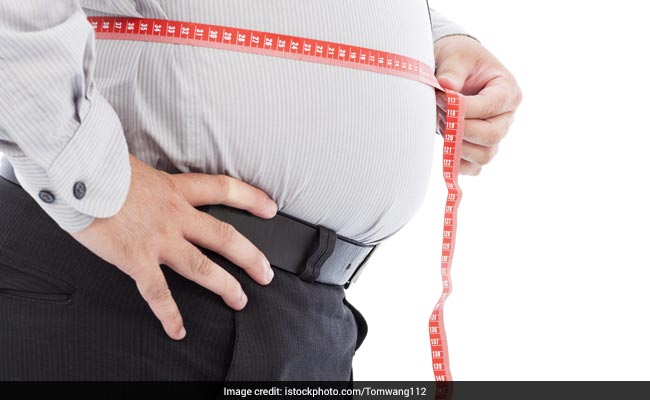Understanding the Difference Between Bloating and Fat: an Important Overview for Digestive Health And Wellness
Comprehending the distinction in between bloating and excess body fat is essential for any individual worried with gastrointestinal health and wellness. While bloating presents as a short-lived and usually unpleasant problem, typically linked to nutritional behaviors or digestive disturbances, body fat stands for an extra permanent modification in one's figure.
Defining Bloating and Fat
Bloating and fat are two distinctive physical sensations that can significantly affect an individual's convenience and body picture. Bloating describes the short-lived swelling or distension of the abdominal area, often accompanied by discomfort or a feeling of fullness. This problem may arise from various elements, including dietary choices, gastrointestinal problems, or fluid retention. Bloating is typically a short-term event and can fluctuate throughout the day, frequently resolving with lifestyle adjustments or medical treatments.
In comparison, body fat is a much more permanent and secure element of human physiology, mainly functioning as an energy book and playing crucial functions in hormone guideline and insulation. Body fat is categorized into 2 types: subcutaneous fat, which exists simply beneath the skin, and natural fat, which borders inner body organs. While excess body fat can cause health difficulties, it is important for overall bodily features.

Sources Of Bloating
Furthermore, food intolerances, such as lactose or gluten intolerance, can result in bloating when the body battles to process particular substances - difference between bloating and fat. Eating too promptly or taking in carbonated drinks can also worsen the concern, as these routines present excess air into the gastrointestinal system
Way of living elements, consisting of stress and absence of physical task, can even more add to bloating by impacting intestine motility. Certain medical conditions, such as irritable bowel syndrome (IBS) or intestinal blockage, might also result in persistent bloating. Recognizing these reasons is essential for effectively managing and minimizing bloating, permitting people to make enlightened nutritional and way of life options that support their digestion wellness.
Signs And Symptoms of Bloating vs. Fat
Differentiating between the signs and symptoms of bloating and excess fat is important for comprehending one's body and dealing with discomfort properly. Bloating generally presents as a sensation of fullness or stress in the abdominal area, typically accompanied by noticeable distension.
While it might contribute to a feeling of heaviness, it generally does not produce the intense discomfort linked with bloating. Rather, excess fat often tends discover this info here to accumulate slowly, leading to a change in body form and dimension over time.

Identifying these distinctions is important. While bloating is frequently temporary and linked to nutritional elements or digestive problems, excess fat shows a more chronic problem needing way of life adjustments. Recognizing these signs and symptoms encourages people to seek suitable remedies customized to their specific issues regarding digestion health and wellness and body structure.
Handling Bloating
Efficient administration of bloating needs a multifaceted method that addresses both dietary choices and lifestyle habits. Initially, it is important to recognize and remove specific foods that may set off bloating, such as those high in fiber, gluten, lactose, or specific fermentable carbs (FODMAPs) Keeping a food diary can aid determine these triggers and overview modifications.
Integrating smaller, much more frequent dishes instead of large ones can additionally decrease bloating, as it eases the gastrointestinal process (bloating and fat). Staying well-hydrated is important, as adequate fluid consumption aids food digestion and assists prevent bowel irregularity, which can contribute to bloating
Furthermore, taking part in routine exercise advertises stomach motility and lowers bloating. Straightforward workouts, such as strolling or yoga, can successfully reduce pain. Mindful eating techniques, such as eating gradually and eating food completely, might better improve food digestion and limit air ingesting.
When to Seek Aid
Acknowledging when to seek clinical help for bloating is crucial, as relentless or serious signs may show a hidden health problem. If bloating is accompanied by added concerning signs and symptoms such as considerable look what i found stomach pain, inexplicable weight management, anal bleeding, or constant queasiness and throwing up, it is necessary to speak with a healthcare expert. These indicators may suggest problems such as irritable digestive tract disorder, gastrointestinal obstruction, or perhaps extra major issues like cancer cells.
Additionally, if bloating persists regardless of dietary adjustments or over-the-counter treatments, it calls for further investigation. People with a history of food poisonings should be specifically alert, as their risk for problems may be higher. Furthermore, if bloating takes place following the intake of from this source details foods, it might show food intolerances or allergic reactions that demand nutritional adjustments or testing.
Verdict
In summary, comparing bloating and excess body fat is important for digestive health and wellness and total wellness. Bloating, a short-lived condition commonly connected to dietary elements and gastrointestinal problems, contrasts dramatically with the stable build-up of body fat. Identifying the symptoms and underlying root causes of each can promote suitable monitoring strategies. Individuals experiencing consistent or serious symptoms ought to seek specialist guidance to deal with prospective wellness concerns efficiently. Comprehending these distinctions is necessary for informed decision-making regarding wellness and way of living.
Comments on “Experiencing bloating or weight gain? fat vs bloating mean for your body?”